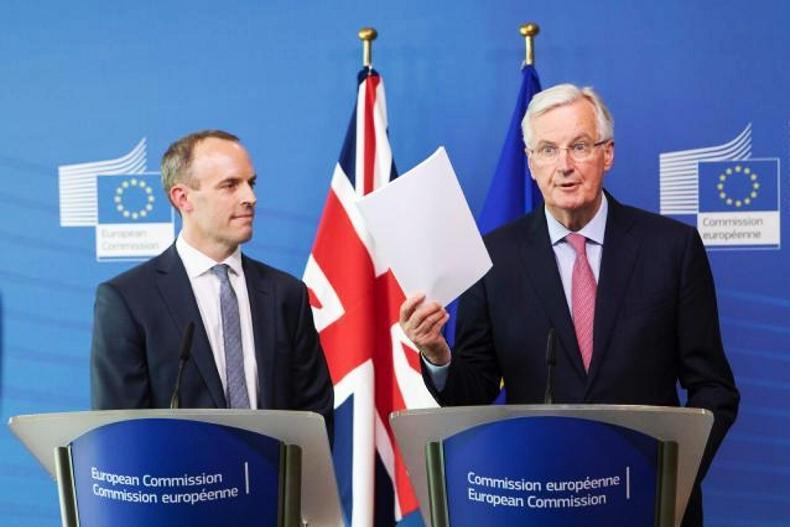The British prime minister went to the informal summit in Austria this week in the expectation that the more conciliatory tone in EU language recently would translate into something substantial ahead of her party conference, which starts next weekend.
Unfortunately for her, the mood in Salzburg was less conciliatory than had been indicated even this week by pronouncements by the EU chief negotiator Michel Barnier.
Still hope
While negotiations may appear to be going nowhere this weekend and a no-deal Brexit inevitable, there is still a chance that an outcome can be achieved.
The big issue for the EU27 heads of state is the belief that the UK, at a political level, were trying to circumvent the negotiation process over recent weeks by approaching national governments and bypass the Barnier.
The EU is absolute in its belief in process and procedure and this is what the prime minister felt at the council.
UK fights back
Her statement this afternoon demanding respect for the UK is a reaction to the political coldness she felt for her proposals in Austria.
Ironically, away from the spotlight, negotiations were thought to be going fairly well between the chief negotiator's team and the new Brexit minister Dominic Raab's team. Despite the negative political mood in Westminster today, the Taoiseach remains of the belief that a deal will be arrived at.
At this point, the noise between the heads of state is about principles and red lines.
For the EU, that means no separation of the four freedoms and the belief that the Chequers proposals smack of cherry picking.
For the UK, the issue is dealing with the Irish border and the belief that anything that deals with Northern Ireland in any way different from the rest of the UK is a diminution of sovereignty.
Importance to farmers
The concern for farmers on the island of Ireland that it is becoming ever clearer that the parties that really need a deal are the UK and Ireland.
The reality is that while some of the EU26 have strong trading links with the UK, as many as 20 member states would experience little or no impact if there was no deal and trade taking place on WTO terms.
Before the storm in Salzburg this week, there was a suggestion from the EU chief negotiator that checks on product going into Northern Ireland could be limited to livestock and agricultural produce.
Borders issue
While this was rejected initially by the UK as putting a border in the Irish Sea, closer consideration could use this as a way out of the impasse.
Currently, there is effectively a border in the Irish Sea for the movement of livestock, with formal applications and even quarantine periods required in some instances for movement between Britain and Northern Ireland.
In 2001, trade between Britain and Northern Ireland was stopped completely for livestock in an attempt to keep disease spreading to the island of Ireland.
There are other areas of devolved responsibility around social issues for Northern Ireland that are controversial in the rest of the UK, but these are not considered politically sensitive.
When the dust settles on the current political row, it will be closer examination of present trading arrangements between Northern Ireland and the rest of the UK that presents the best prospect for a solution.
If everything else can be dealt with at the point of departure or arrival, then extending the livestock trade principle to agricultural produce should be manageable.
Tension inevitable
The remaining period until the UK departs on 29 March will have plenty of moments like this week in Austria.
However, the UK and Irish need for a deal that delivers trading arrangements close to the status quo should ultimately focus minds to find words that weave a path around the principles.
Otherwise, farmers on the island of Ireland will be hoping that their respective jurisdictions have the contingency plans in place and the funding to support them.
Trade as we have known it would cease and support measures would be required immediately to prevent meltdown in agriculture.






 This is a subscriber-only article
This is a subscriber-only article










SHARING OPTIONS: